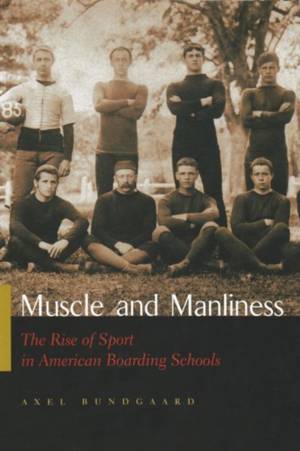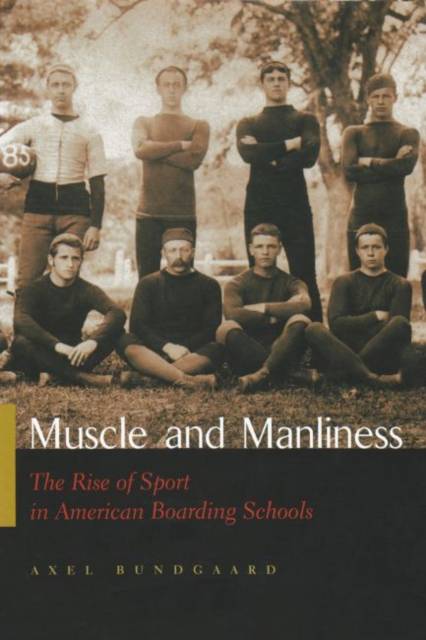
- Retrait gratuit dans votre magasin Club
- 7.000.000 titres dans notre catalogue
- Payer en toute sécurité
- Toujours un magasin près de chez vous
- Retrait gratuit dans votre magasin Club
- 7.000.0000 titres dans notre catalogue
- Payer en toute sécurité
- Toujours un magasin près de chez vous
50,95 €
+ 101 points
Description
Axel Bundgaard has produced a meaningful work on the important but little-told history of interschool athletics, exploring the introduction and nature of sport in the controlled environment of the American boarding school.
Beginning in the late eighteenth century, American educators looked to the English public school as the educational archetype for producing good men, good Christians, and good leaders. The British incorporation of sport into the process of education, however, took root only slowly in the United States, where it seemed alien to Puritan values extolling hard work and deploring play as wasted time. Only when educators were convinced that sport was an essential tool in the process of raising the next generation by building character, team spirit, and leadership did the informal physical play initiated by students in early schools begin to evolve toward the highly organized, school-sponsored sports of today. Using archival material from several eastern boarding schools founded in the eighteenth and nineteenth centuries, Bundgaard traces this process from its beginnings in the muscular Christianity prevailing in the boarding schools of Victorian England-most notably Rugby. There, athletics and the prefect system older boys shaping the manners and morals of younger ones were used to mold youth into "Christian gentlemen," and it was believed that the seeds of future military victories were planted on the school playing fields. Bundgaard shows how this model of sport and character building was gradually absorbed into the classical curricula of private education in America, and then continues to chronicle the dramatic changes in this model through the first decade of the twentieth century, as educational philosophies evolved and an ideal of physical vigor and "conduct befitting a gentleman" emerged. Drawing on archival sources at Groton, Andover, Exeter, St. Paul's Suffield, Williston, Woodberry Forest, and Worcester Academy interviews, personal communications, school newspapers, and histories of various institutions Bundgaard provides a new critical perspective on the evolution of play and sports for schoolboys. This book will stimulate research on the broader subject of American secondary school athletics and pique the interest of sport historians, educators, and a general audience.Spécifications
Parties prenantes
- Auteur(s) :
- Editeur:
Contenu
- Nombre de pages :
- 244
- Langue:
- Anglais
- Collection :
Caractéristiques
- EAN:
- 9780815630821
- Date de parution :
- 11-07-05
- Format:
- Livre relié
- Format numérique:
- Genaaid
- Dimensions :
- 163 mm x 243 mm
- Poids :
- 498 g

Les avis
Nous publions uniquement les avis qui respectent les conditions requises. Consultez nos conditions pour les avis.






